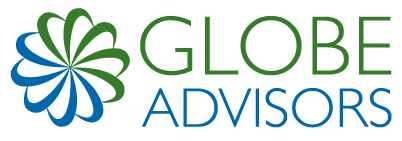by Eamonn Percy
June 17th, 2016 – ‘A person who has never made a mistake has never tried anything new.’ – Albert Einstein
Invest In Yourself
Several months ago, I wrote an article on why I believe your best investment is in yourself. I gave a personal example from the beginning of my career of how I invested the equivalent of $100,000 in my education at a time when I was driving a car I bought for $55 and had not purchased new clothes in two years. I knew the material things would come only after I built the skills necessary to create value in the marketplace. This early investment in myself launched me into a successful 25-year career as a C-level corporate executive, investor and business owner.
While it’s always wise for a young person to invest in a quality education and job ready skills, today it is even more critical as the world changes dramatically on multiple fronts. The rate of economic, technological, political and demographic change is staggering, and the cumulative impact is permanently altering the future in ways that are hard to imagine. Economically, for instance, the US Federal Funds Rate from 1954 to 2008 averaged 4.96%. However, it has dropped dramatically to an average of 0.14% since 2008, creating massive market distortions that will have significant long-term impacts.
Technological change, driven largely by information technology and innovation, is disrupting existing industries and institutions, simultaneously creating economic opportunity and displacement, winners and losers. Political change, in the form of rising nationalism and anti-establishment sentiment, is gaining steam, particularly among young people. Finally, demographic change driven by millennials (people between the ages of 18 and 35), is remaking society and the economy, while creating a new, large, economic and political force. According to PEW Research Centre, in 2016 millennials will make up 35% of the US workforce and quickly surpass the baby boomers to make up 50% of the workforce in 2025.
The Changing World of Millennials
Millennials are entering a world where many of the rules of their parents no longer apply, and the skills required to be successful need to be developed fast! It is a 24-hour per day, globally connected world of unlimited information and unlimited competition. The philosophy of ‘just work hard and get a good job’ taught by parents and the school system will not be enough to succeed. It will take a fundamentally different approach to building skills, adapting to change and making money, for millennials to thrive in this new world.
Already, millennials are at some risk. According to a recent study by the Princeton-based Educational Testing Service (ETS), ‘despite having the highest levels of educational attainment of any previous American generation, these young adults (millennials) on average demonstrate relatively weak skills in literacy, numeracy, and problem-solving in technology-rich environments compared to their international peers.’ The study found that US millennials scored in the bottom half of the 22 country study on the basic numeracy and literacy skills necessary to be effective in the workplace.
Therefore, to survive and then thrive in this new, emerging world, more than ever young people will need to invest in themselves in order to build skills, create value in the marketplace and increase their incomes, before they think about traditional investing like their parents. They need to focus on themselves as an asset and consistently invest in that asset until it is productive and able to generate good income and create value.
The Nine Critical Skills
To achieve this, I believe millennials need to focus on investing in the development of three categories of skills: basic skills, adaptability skills, and money making skills. I am referring specifically to skills, not talents or interests, but hard skills that can be learned; an expertise that will give you the ability to do something well.
Basic Skills: There will be too much competition in the future workforce to allow anyone without fundamental numeracy skills and literacy skills to succeed. The ability to express yourself well in a world driven by communications and information technology is valuable, transferable and necessary for long-term success. In addition, sound financial and investment skills are necessary to understand how economics impact daily life and the how to take advantage of that impact.
Adaptability Skills: Due to the significant changes millennials can expect to experience over their career, the ability to adapt to change will be important in order to avoid obsolescence and downward mobility. This starts with developing self-awareness skills, or the ability to see yourself as you really are, not as you think you are. Then, to embark on a program of systematic self-improvement skills development, in order to correct your deficiencies and make the changes necessary to adapt. Finally, developing problem-solving skills so you can help employers (or customers) rapidly remove stubborn obstacles and create value in the marketplace.
Money Making Skills: The last time I checked, there was not a course called Making Money 101 in high school or university, though there should be! As the sun sets on the industrial age and rises on the information age, the ability to make money will be critical in order to stay ahead. This starts with developingsales skills which you need to promote yourself and your value in all aspects of life, not just business. It will be important to have a strong second language skill, particularly Mandarin, as the economic influence of China will grow for decades. The final money making skill will be negotiating skills, as most millennials will be freelancers when they compete with technology and a global workforce for jobs.
How to Invest in Building the Nine Critical Skills
Quality Education: Invest in a quality education at the post-secondary level. Focus on what you will actually learn, not in just getting a diploma. I am a particularly strong advocate of vocational institutions, as well as professional studies in the fields of science, engineering, technology, design, and health.
Standardized Testing: The truth is not always pleasant, but best to find it out first and fast. Consider taking standardized tests or assessments to find your weak points. Then face reality and work on fixing these weaknesses.
Company Training: Many large companies offer excellent training and skills development programs for new grads and employees. It can be a good place to start a career. Take everything offered and treat it seriously.
Continuing Education: Never stop learning. Constantly take webinars, online courses such as Massive Open Online Learning (MOOCs), seminars and workshops. Focus on specific skills, as I mentioned above.
Get Good Mentors: Seek out people in your industry that are 10 times more successful than you and ask them to help you develop skills. Treat the relationship with respect and focus on one or two specific skills. Return the favor.
Fail Well: You learn by trying, making a mistake and doing it better next time, aka, failing. Embrace failing as a chance to learn, fail fast but learn from failure.
Learn From Others: There is not enough time to make all the mistakes yourself, so learn from others. Read good books, download worthy podcasts, attend conferences and keep an open mind.
Good investing is about buying something of value that pays a dividend and continues to grow. For a young person today, an investment in yourself will pay back many times over the course of your life. It will help you build the skills, confidence and then income necessary to live a fulfilling, productive and worthwhile life in our changing and new world.
 Eamonn is the author of the upcoming book The 1% Solution – How Small Daily Improvements Produce Massive Long-term Results. Get free, early notification of it here.
Eamonn is the author of the upcoming book The 1% Solution – How Small Daily Improvements Produce Massive Long-term Results. Get free, early notification of it here.
Subscribe to his free weekly newsletter, Growth by Design

